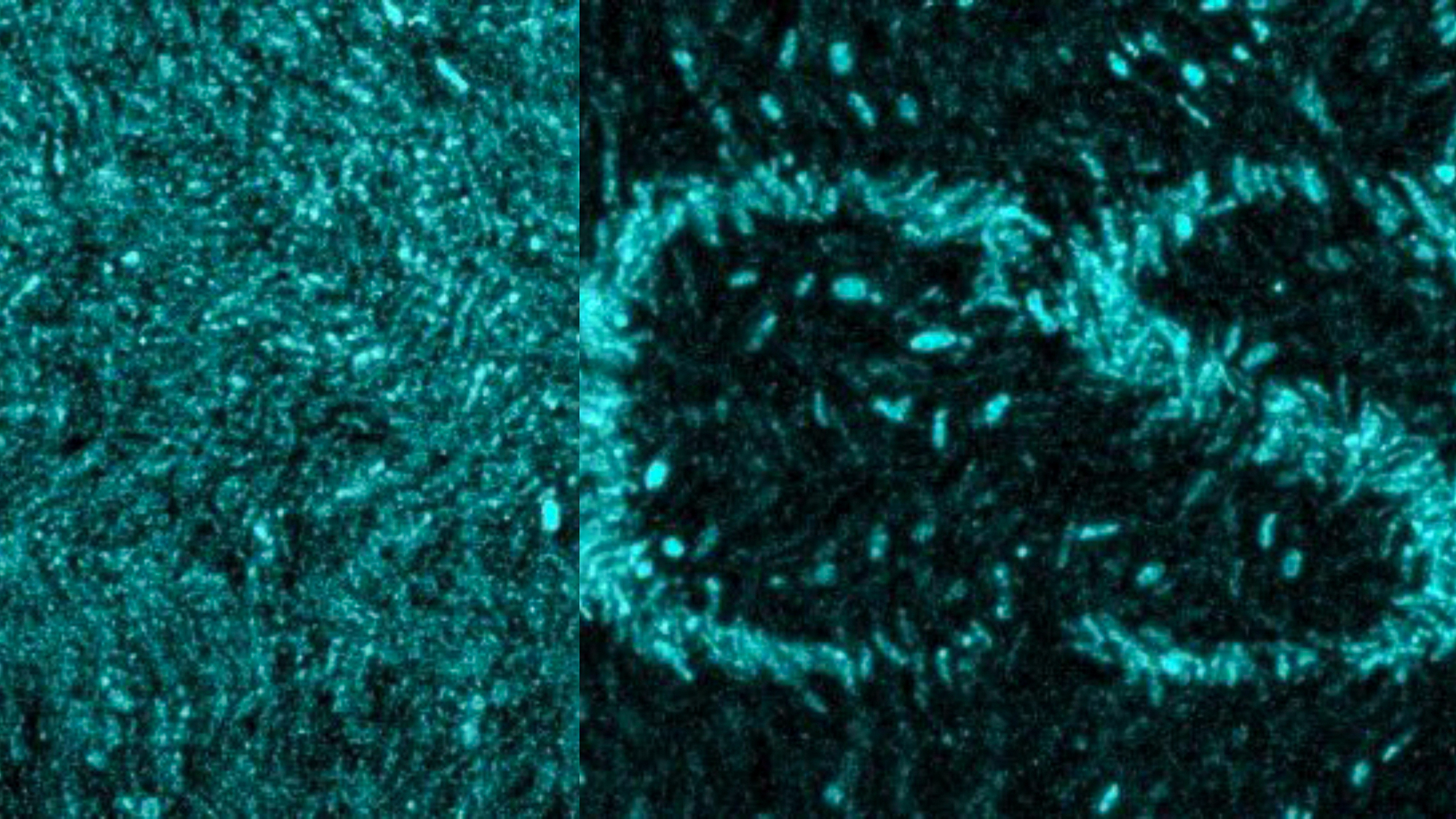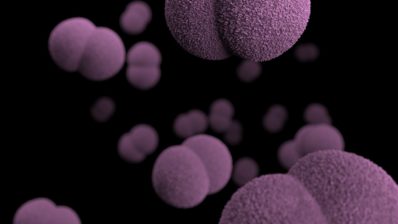Bacteria of the species Bacillus subtilis have memory capacity — they can store information about their past conditions —, similarly to neurons in the brain: by controlling the flow of ions through their cell membrane. This has been confirmed by a recently published study in which researchers at the Department of Experimental and Health Sciences, Pompeu Fabra University (DCEXS-UPF) and the University of California San Diego (UCSD) have participated. The discovery reveals a parallelism between unicellular organisms and the neurons that process memory in our brain, in a much complex way.
The researchers had previously discovered that bacteria in biofilms — colonies of bacteria that cooperate to protect their inhabitants from external threats such as antibiotics — use electrical signals to communicate. These signals consist of charged atoms (ions) that enter and leave the cell, and their spread allows communication among bacteria.
To prove the memory capacity of B. subtilis, scientists used the light to vary the ion flux. “We observed that two neighbouring bacteria behave differently, depending on whether or not they have received light. These bacteria continue to behave differently even hours after light induction”, confirms the DCEXS-UPF researcher Jordi Garcia-Ojalvo.
The result may inspire new approaches to synthetic biology, since the ability to encode memory in bacterial communities could be of great importance for the design of complex computer systems using living organisms.
Chih-Yu Yang et al. Encoding Membrane-Potential-Based Memory within a Microbial Community. Cell Systems, April 2020. https://doi.org/10.1016/j.cels.2020.04.002.






